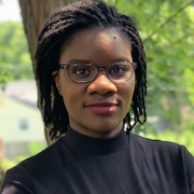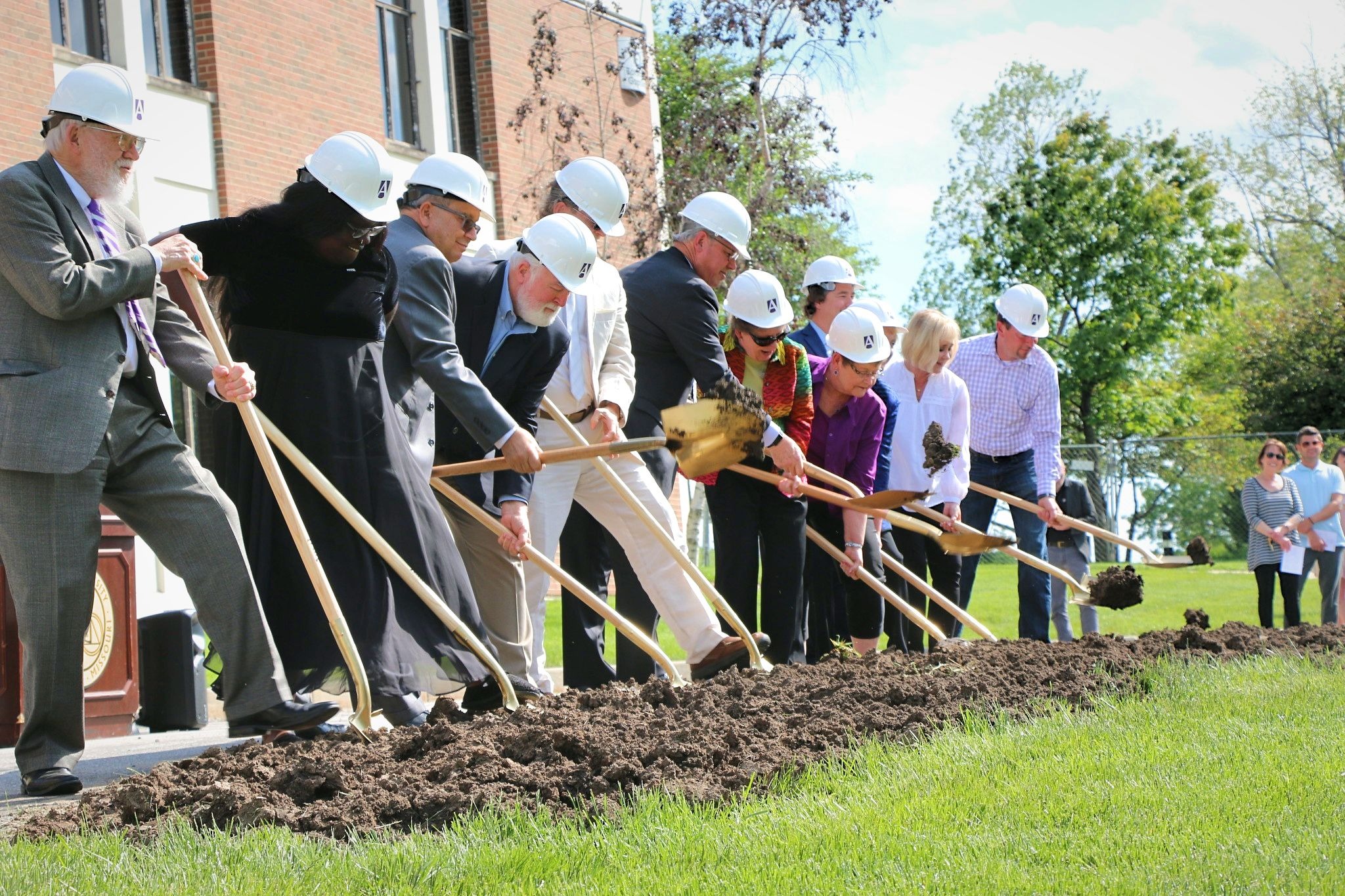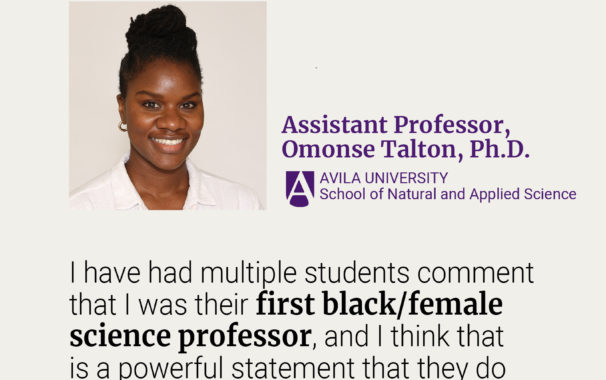Avila University Assistant Professor, Omonse Talton, Ph.D. was selected for the 2022 Human Anatomy and Physiology Society (HAPS) Marieb, Hoehn, And Haynes Award For Diversity, Equity, And Inclusion and will be presented with the award at the HAPS annual conference in May.
This award was created to encourage instructors and students from minority groups traditionally under-represented in HAPS professions to attend the HAPS Annual Conference and share their stories.
Talton grew up in The Gambia, West Africa. She earned her doctorate in Reproductive Physiology, followed by a postdoc, at the University of Missouri. “During my doctoral degree and postdoc, I had the opportunity to teach Introductory Biology courses at the University of Missouri. I found teaching immensely rewarding and started looking for opportunities to work more directly with undergrads in both my teaching and research. That’s how I ended up at Avila. In my position, I teach General Biology Anatomy and Physiology. I conduct research with talented students, and I’m also involved in several service positions,” said Talton.
How did you learn of this award?
I attended the conference virtually last year during the pandemic, and like a lot of organizations, HAPS is hosting its first in-person conference post-pandemic this year. In advertising the conference, they sent out links to various travel grants to support travel for faculty and students.
Could you talk a little about the essay you submitted to be considered?
My essay focused on evidence-based strategies that I employ in my course design to make the material resonate with a diverse student body, science outreach efforts within the University and the Kansas City community, and how I redesigned my courses during the COVID pandemic, including a virtual Anatomy and Physiology lab using 3D virtual tools.
How do you engage and encourage students to pursue a career in Human Anatomy and Physiology?
As most of my students are pre-Nursing or allied health, the goal is more so to encourage them to appreciate the complexity and mechanics of how the body works and prepare them for their future careers. It’s easy to get lost in the detail and not see the big picture, so one of my goals is to constantly bring us as a class back to the big picture of why all the little bones and muscles are relevant to the field they want to pursue.
Could you please briefly describe how your efforts advance diversity, equity, and inclusion in your field?

“Students need to see themselves not only in the careers they pursue but also in their everyday encounters with scientific material.”
– Omonse Talton, Ph.D.
To this end, my two major anatomy lab purchases this past year have been a torso model representing people of African descent and a model of the female reproductive system to enhance our teaching on pregnancy, which is where my expertise and passion lie. In addition, I use medical illustrations that showcase diversity in my lecture slides, ensuring that the individuals in my classroom are represented every day. I have had multiple students comment that I was their first black/female science professor, and I think that is a powerful statement that they do belong in this field.
Have you previously attended this conference or presented a workshop?
This will be my second time attending (first time in-person), and my first presentation.
Talton has received other awards as well, including the 2021 University of Missouri TRIUMPH award as co-investigator studying the Effect of Gestational Diabetes on Placental Development and the 2020 Society for The Study of Reproduction (SSR) Burroughs Wellcome Fund Travel Fellowship. The SSR promotes the study of reproduction by fostering interdisciplinary communication among scientists from 50 countries around the world.

